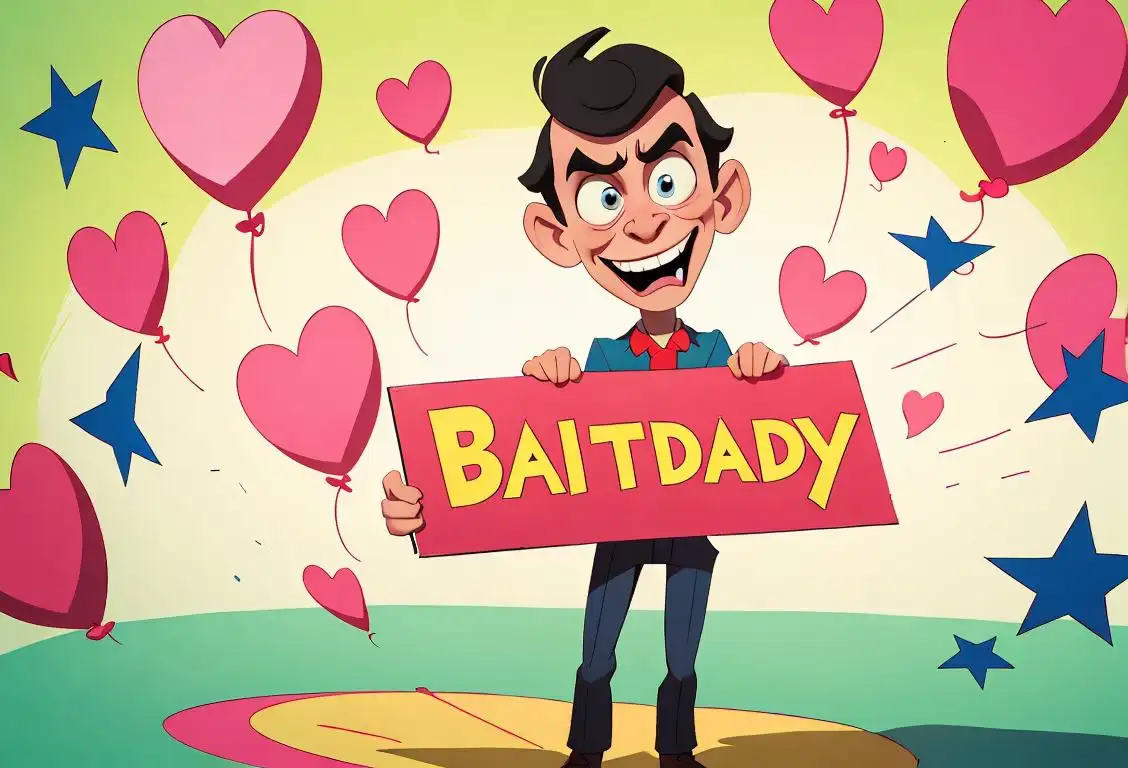National Dislike Day

Welcome to the wacky world of National Dislike Day! Prepare yourself for a day filled with loving what you hate and embracing your inner grump. This unusual holiday encourages us to find joy in the things that typically irk us. So sit back, relax, and let's dive into the amusing history and celebrations of National Dislike Day.
When is Dislike Day?
It's national dislike day on the 19th March.
The Origin of National Dislike Day
The origins of National Dislike Day are as mysterious as the inexplicable desire to hate on something. While we couldn't find any concrete evidence of its inception, we suspect that it was created by a group of well-intentioned curmudgeons who wanted a specific day to vent their dislikes and frustrations.
Over time, this peculiar holiday gained traction in the online world and has found a peculiar place in the hearts of those who take pleasure in griping about things. While some people may find it strange to devote a day to disliking, National Dislike Day has become a lighthearted outlet for sharing funny anecdotes and good-natured grumbles.
How to Celebrate National Dislike Day
Celebrating National Dislike Day is all about embracing your inner critic while still having a good laugh. Here are a few whimsical ways to participate:
- Make a Dislike List: Grab a pen and paper, or open a notes app on your phone, and jot down all the things you dislike. It could be anything from mundane annoyances to bizarrely specific quirks. Let your creativity flow!
- Share Your Dislikes: Take to social media and share your dislikes using the hashtag #NationalDislikeDay. You might be surprised to find others who share your aversions and can commiserate with you!
- Throw a Dislike Party: Invite your friends and family over for a get-together filled with witty banter and playful teasing. Encourage everyone to bring their favorite grievances and swap amusing stories.
Did You Know?
Did you know that research suggests venting your dislikes in a controlled manner can actually have psychological benefits? While it's important to focus on the positives in life, a little bit of complaining once in a while can provide a much-needed release of built-up stress and frustration. So go ahead, let it out!
History behind the term 'Dislike'
15th century
Emergence of the term 'dislike'
The term 'dislike' first emerged in the 15th century in Middle English. The word 'dis-' comes from the Old French 'des-', which means 'lack, absence of' or 'opposite of'. The second part '-like' comes from the Old English word 'lician', which means 'to please' or 'to attract.' Thus, 'dislike' literally means the absence of pleasure or attraction.
19th century
Expansion of the term 'dislike'
In the 19th century, the term 'dislike' gained wider usage and recognition. As society became more expressive and emotional, individuals needed a word to articulate their lack of fondness or satisfaction with something or someone. 'Dislike' filled this linguistic gap and became a commonly used term to express a feeling of aversion or distaste.
20th century
Inclusion in dictionaries
By the 20th century, 'dislike' had become firmly established in the English language. It found its way into dictionaries, solidifying its position as a recognized term. People could now consult dictionaries to find the official definition of 'dislike' and its proper usage in written and spoken language.
21st century
Popularity in digital age
With the advent of social media and the widespread use of technology, the term 'dislike' gained even more prominence. While platforms like Facebook introduced the 'like' button for users to express approval, the absence of a 'dislike' button became highly requested. The desire to have a way to indicate a negative sentiment or disagreement led to discussions and debates about the value of a 'dislike' button. Although Facebook has not officially implemented one, the term 'dislike' remains relevant in online conversations and interactions.
Present day
Versatile usage and cultural impact
In the present day, 'dislike' has become an everyday term used across various contexts. It is employed not only to express personal preferences but also to critique products, express political dissent, or dislike a particular behavior. The term has become a way for individuals to voice their opinions and assert their individuality within the wider fabric of society. It continues to shape and influence everyday communication, reinforcing the significance of one's rights to express their dislikes.
Did you know?
Did you know that research suggests venting your dislikes in a controlled manner can actually have psychological benefits? While it's important to focus on the positives in life, a little bit of complaining once in a while can provide a much-needed release of built-up stress and frustration. So go ahead, let it out!Tagged
fun social media celebration humor onlineFirst identified
19th March 2020Most mentioned on
19th March 2020Total mentions
447Other days
Dislike Day
Sent Nudes Day
Titles Later That Day
Cynical Network Day
Fake Friend Day
Eat Shit Lyle Day
Bellend Day
Democracy Day
Cousins Day
Name Yourself Day








